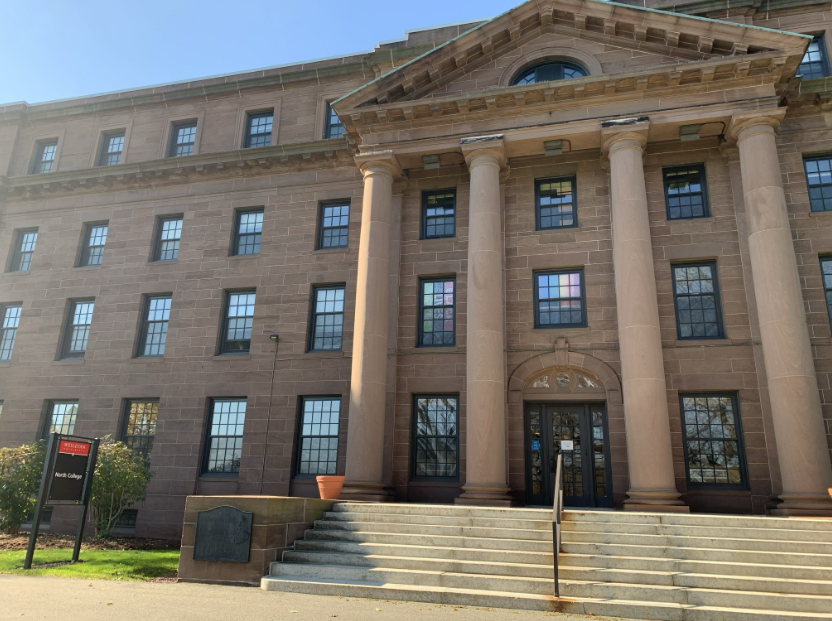
c/o Madison Yarbrough, Staff Photographer
The University raised $76.6 million in gifts and donations during the last fiscal year (from July 1, 2019 through June 30, 2020) for the renovation of campus buildings and to combat the $15 million budget deficit caused by the COVID-19 pandemic.
The total raised in the last fiscal year amassed to the University’s second highest annual fundraising total and doubled the average annual amount raised since the end of the “This is Why” campaign in 2016, which sought to increase the University’s endowment to fund financial aid, academic programs, and off campus engagement.
Due to COVID-19, normal fundraising practices were suspended halfway through the fiscal year, and the Office of Advancement’s focus shifted towards contributing to efforts that ensured the safety of University community members.
“We completely paused fundraising in March because of the pandemic, out of respect for the broadly felt health and financial concerns,” Associate Vice President For Development Ann Goodwin ’79 said. “Instead, we spent considerable time reaching out to our alumni and parents to make sure people were healthy and doing okay. Advancement staff worked on the COVID hotline answering questions from families and students. We were also unable to have in-person reunions last spring because of the pandemic, and those are typically a time of focused fundraising.”
Due to the influx of new pandemic-related costs including the twice-weekly COVID-19 testing and personal protective equipment (PPE) for students and employees, the University established the Campus Reactivation Relief Fund (CRRF) to create a new source for donations. President Michael Roth ’78 believes that the University has already done a tremendous amount to alleviate the financial burdens that the University is facing as a result of COVID-19.
“We have managed to avoid changes to compensation and retirement accounts,” Roth said in an interview with The Argus. “We have managed to avoid layoffs and furloughs, and I expect we will avoid those things if we have students back in the Spring as expected. If we have a similar number of students studying on campus in the spring as in the fall, I think we will address the deficit using cash reserves and raising money to fill that hole.”
As the University deals with the financial stresses of COVID-19, Goodwin shared how impressed she is with the gifts and donations that the University has received to assist students and cover pandemic-related costs. In addition to the University’s financial support for students, the Wesleyan Student Assembly (WSA) established an $80,000 Student Emergency Fund.
“As a longtime staff member and Wesleyan alumna myself, I’ve been so impressed to witness the Wesleyan community come together in so many meaningful ways since last spring,” Goodwin said. “The generosity of our community is evidenced by the overwhelming support of the Emergency Fund, which assisted students who experienced unexpected financial hardship, and early gifts to the Campus Reactivation and Relief Fund.”
Goodwin partially credits two large gifts for the University large fundraising total. The two gifts, both from confidential sources, will fund the renovations of the Public Affairs Center (PAC) and the construction of the new science building. The University was also the beneficiary of the estate planning of multiple alumni who passed away. According to Goodwin, large gifts make up the greatest portion of the amount fundraised. Regardless of their size of donations, however, Goodwin underscored the importance of all gifts received by the University.
“Gifts at all levels are crucial, both because small gifts cumulatively add up to significant numbers and because people who end up making very large gifts typically establish their giving patterns over many years, starting with modest gifts,” Goodwin said.
In addition to gifts towards facilities, namely the new science building and PAC, the annual fundraising figure includes gifts to a variety of University departments, including the Wesleyan Fund, the Emergency Fund for students, academic and athletic departments, financial aid, and the endowment.
“All gifts are crucial because they support commitments we make as a University,” Goodwin said, “For example, gifts to the endowment for financial aid or unrestricted gifts to the endowment help Wesleyan maintain a robust financial aid budget, which provides scholarships to nearly half of Wesleyan students.”
Despite the many successes of fundraising this year, additional funds will still be needed to cover student financial need.
“Moving forward, in light of the economic downturn caused by the pandemic, there will be an increased need and commitment to financial aid,” Goodwin said. “Our current efforts will focus on that area, securing planned gifts, and building our donor ‘pipeline’ to broaden our giving base. The generosity of alumni and parents – and the incredible support from our trustees – during this time has been, and will continue to be, very much appreciated.”
Eliza Kuller can be reached at Ekuller@wesleyan.edu